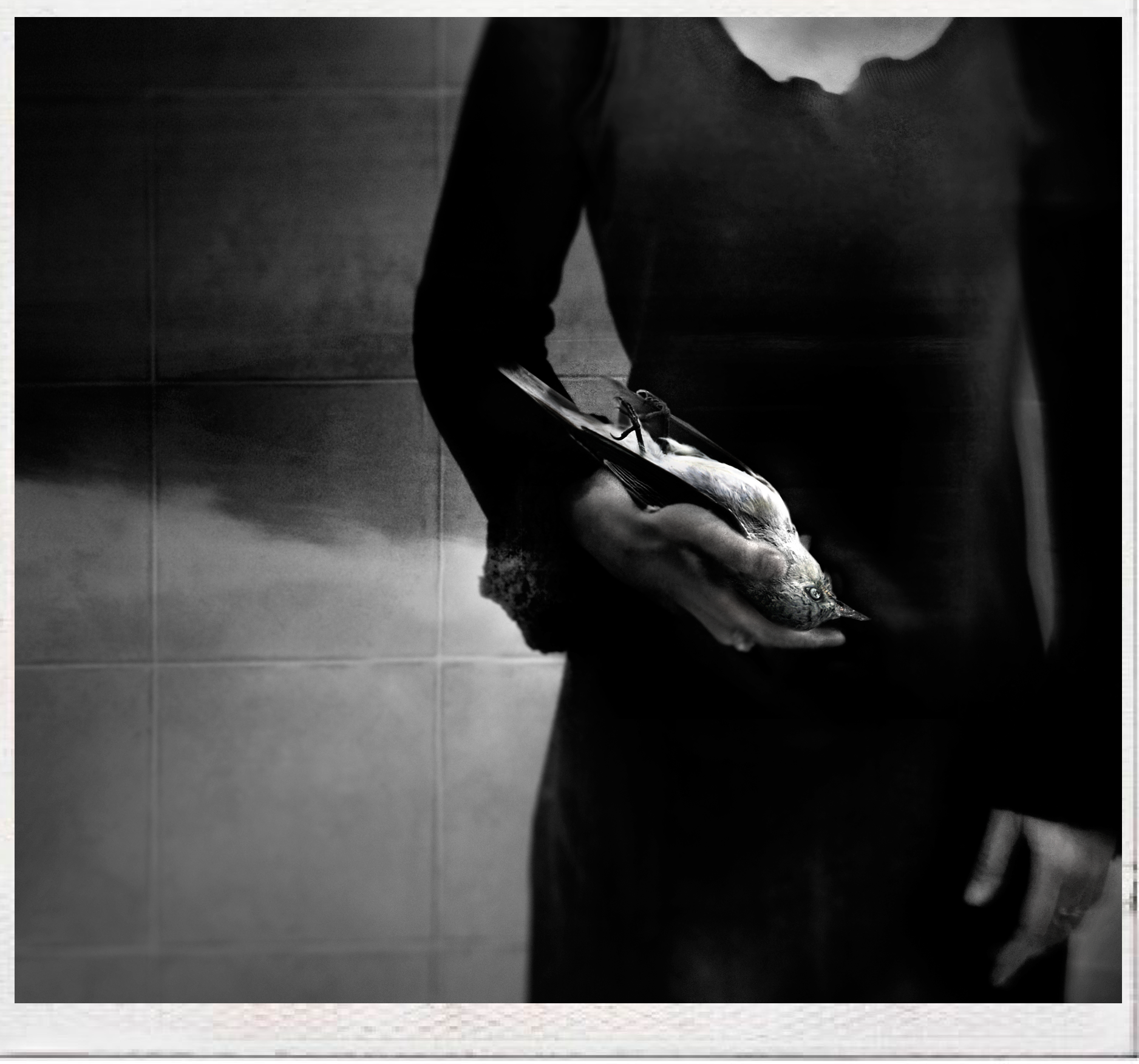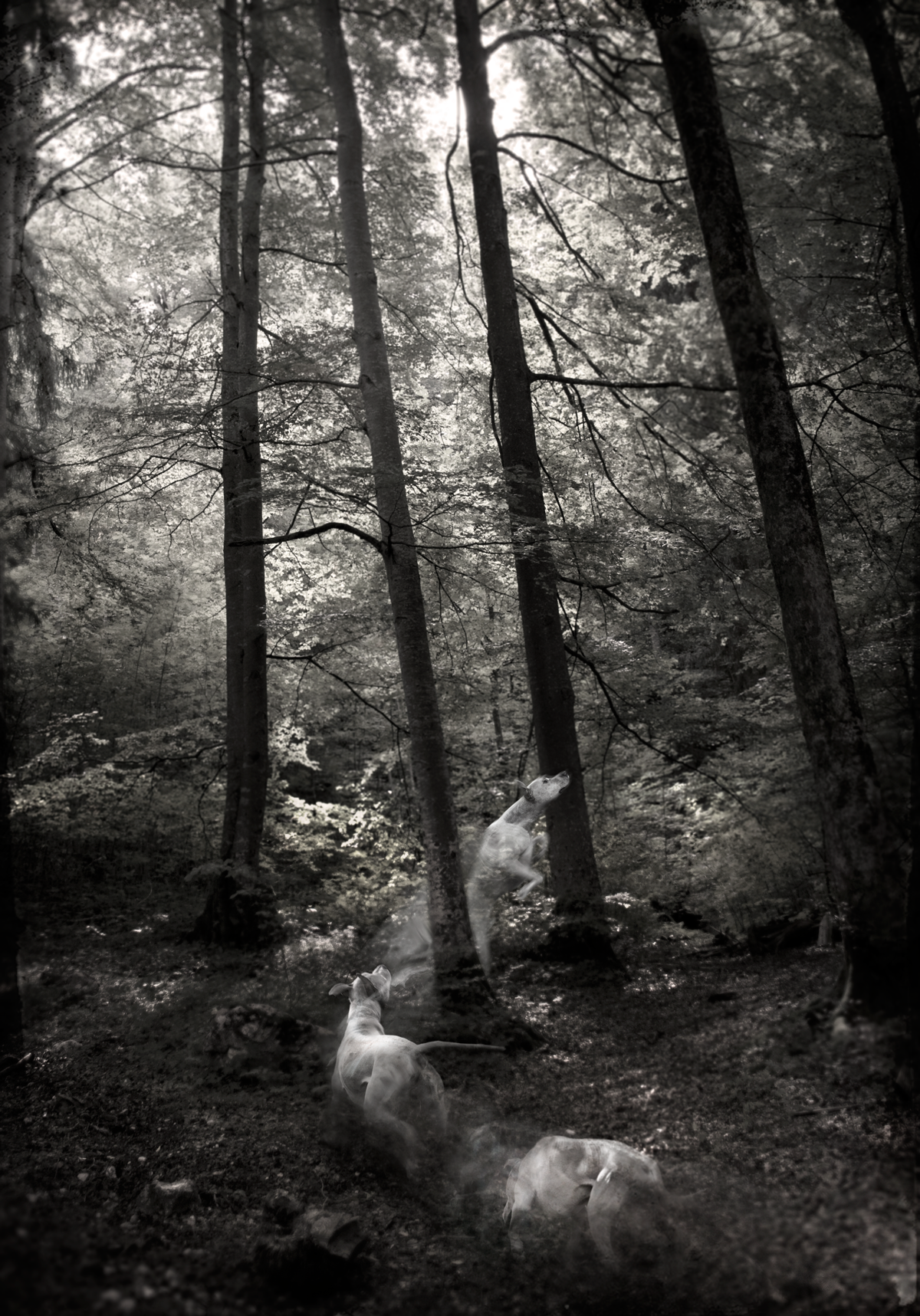De Profundis

By the fibreglass statue of Aphrodite
at the swimming-pool’s edge
she watches the invisible children appear
and disappear, their shapes echoed
in the silhouetted palms of hotel windows,
in the gravid buzz of flies above garbage cans,
behind Chinese restaurants. Under ceiling fans
their voices curl through vases of cut flowers,
the steam that coils on a teacup’s lip, where
buses stop; they wheel about her
like a bitter wind, rearranging dead leaves
into forms in the air and later, in
the television's blue light
her elbows jutting against vacant glass
she watches the rain sweep sideways, only she
and the neon of late night supermarkets
she and the rain-black road, the slight weight
of an empty hand.
Der Doppelgänger

After the flashlights
had returned from the escarpment
and the reproach of neighbours gave way
to a silence more brutal
she would tell them
of the black trees, the white trees
rooted grave
where the sun has no access
and the dog glimpsed
between elbows of thick branches
a dog who owned no shadow
or whose shadow assumed the form of birds
and who carried a child's shoe in its mouth
through woods that no real dog would enter
woods ringed by autobahns and built
on the rubble of destroyed apartment blocks
and soviet tanks
and where it passed she wrapped wire
around the trunks of the pines
stark
white
stark
in another room
the television drones its test pattern
but now she stands in an open window
as the wind moves across the yard
and folds floral curtains
into her arms